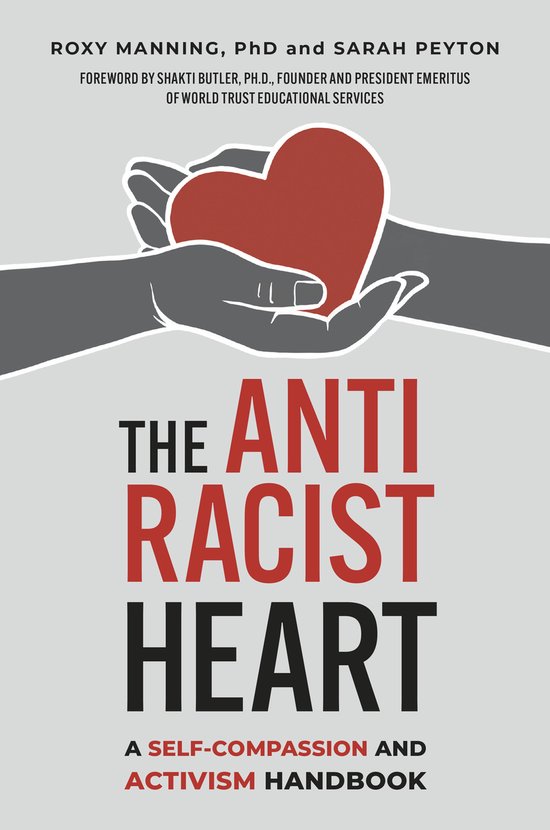
The Antiracist Heart
The Antiracist Heart delivers a unique path to antiracist activism and introspection by applying neuroscience exercises, questionnaires, and journaling prompts based on the book How to Have Antiracist Conversations.
Have you wanted to stand up for the values you believe in, yet found yourself inexplicably held back? Do you long for a way to hold people accountable that doesnt simultaneously demean them? The Antiracist Heart combines cutting-edge neuroscience with ways to build Martin Luther King Jrs vision of Beloved Community, delivering practical tools for the internal and interpersonal work of antiracism. This book prepares the reader to have a new kind of conversation when racist harms occur one that doesnt shy away from hard truths yet doesnt demonize anyone.
Based on the framework of How to Have Antiracist Conversations, the activities in this handbook empower readers to disrupt the ways racism plays out in daily life. In each chapter, Manning, a clinical psychologist and antiracist activist, and Peyton, a neuroscience expert and educator, both trainers in Nonviolent Communication, unpack key concepts like bias and trauma using brain science alongside practices for self-connection and dialogue.
The exercises are:
Flexible
Designed to work for individuals or groups
For people of the Global Majority (BIPOC) or white people
For those with or without experience in addressing the effects of racism
By better understanding the neuroscience of how brains develop in response to culture, readers gain skills to interrupt implicit biases and racist constructs deep within the brain. The activities invite introspection and a radical form of self-compassion that make antiracist dialogues and actions possible, thus creating real change.
Have you wanted to stand up for the values you believe in, yet found yourself inexplicably held back? Do you long for a way to hold people accountable that doesnt simultaneously demean them? The Antiracist Heart combines cutting-edge neuroscience with ways to build Martin Luther King Jrs vision of Beloved Community, delivering practical tools for the internal and interpersonal work of antiracism. This book prepares the reader to have a new kind of conversation when racist harms occur one that doesnt shy away from hard truths yet doesnt demonize anyone.
Based on the framework of How to Have Antiracist Conversations, the activities in this handbook empower readers to disrupt the ways racism plays out in daily life. In each chapter, Manning, a clinical psychologist and antiracist activist, and Peyton, a neuroscience expert and educator, both trainers in Nonviolent Communication, unpack key concepts like bias and trauma using brain science alongside practices for self-connection and dialogue.
The exercises are:
Flexible
Designed to work for individuals or groups
For people of the Global Majority (BIPOC) or white people
For those with or without experience in addressing the effects of racism
By better understanding the neuroscience of how brains develop in response to culture, readers gain skills to interrupt implicit biases and racist constructs deep within the brain. The activities invite introspection and a radical form of self-compassion that make antiracist dialogues and actions possible, thus creating real change.
| Auteur | | Ph.D. Manning, Roxy |
| Taal | | Engels |
| Type | | Paperback |
| Categorie | |